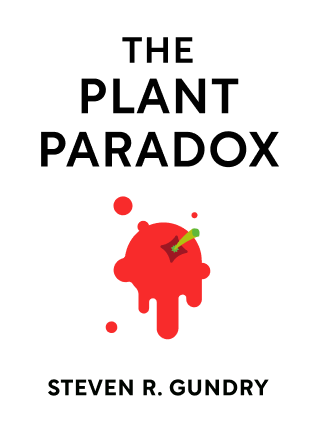

This article is an excerpt from the Shortform summary of "The Plant Paradox" by Steven R. Gundry. Shortform has the world's best summaries of books you should be reading.
Like this article? Sign up for a free trial here .
What is the connection between lectins and weight gain? Would a lectin-free diet help you lose weight?
With fad diets constantly promising a way to lose weight quickly, the Plant Paradox Program aims to help you understand where that extra weight is coming from, and about the relationship between lectins and weight gain.
Read more to understand how eating lectins and weight gain go hand-in-hand.
Plant Paradox Explains Lectins and Weight Gain
From the low-carb, high-fat keto diet to whole-foods-based paleo diet, there are countless eating programs promising to help you lose weight and be healthier. The Plant Paradox Program (PPP) is an eating and lifestyle program based on the way foods and products affect your body and immune system; it involves eating lots of the right plants, while avoiding others, in order to reach and maintain a healthy weight and live free of chronic and autoimmune diseases. The program is based on the premise that small things can cause big problems and the key to your health is less about what you add to your diet and more about what you remove.
Why Not Being On The PPP Is Making You Fat And Sick
Lectins and weight gain go together for several reasons. First, lectins break through your gut wall and into other areas of your body. Your immune system recognizes the lectins as foreign invaders and attacks. In order to fight the war on lectins, your body needs its soldiers—white blood cells—to be well-fed, so it diverts calories from your muscles and brain and stores them as fat (fuel) for your white blood cells.
Additionally, your body makes you hungrier so you’ll ingest more calories to fuel the battle. Your body stores the fat near the battlefront to make it easily accessible to the white blood cells (in other words, belly fat is a sign of a battle happening in your gut). So being overweight is a sign that a battle is going on inside your body.
Lectins also masquerade as certain hormones, in some cases instructing your cells to continually store fat.
Lectins’ fattening effects were beneficial to our ancestors because gaining weight gave them a better chance of surviving winter, when food was scarce. But in today’s context, lectins and their fattening effects are no longer helpful but harmful.
Additionally, human genes are designed to help you live long enough to have offspring to propagate the species, and then die off so that the next generation has enough food and resources to do the same (again, this adaptation is less relevant for humans today). The grain-and-dairy diet does just that, fattening you up and then bringing on diseases that prevent a long, healthy life.
There are countless diets out there—including low carb, ketogenic, and low-fat/whole-grain diets—but most don’t address the root issue, which is that the food that you eat and products you use trigger biological responses in your body that make you fat or unhealthy. Additionally, many diets focus on major short-term efforts that produce quick results but don’t change long-term habits, so you gain the weight right back.

———End of Preview———
Like what you just read? Read the rest of the world's best summary of Steven R. Gundry's "The Plant Paradox" at Shortform .
Here's what you'll find in our full The Plant Paradox summary :
- Why eating more vegetables isn't enough, and why some vegetables are toxic to your body
- The science behind lectins and how they tear apart your body, making you fat and sick
- The 6-week program to get your body back on healthy grack






